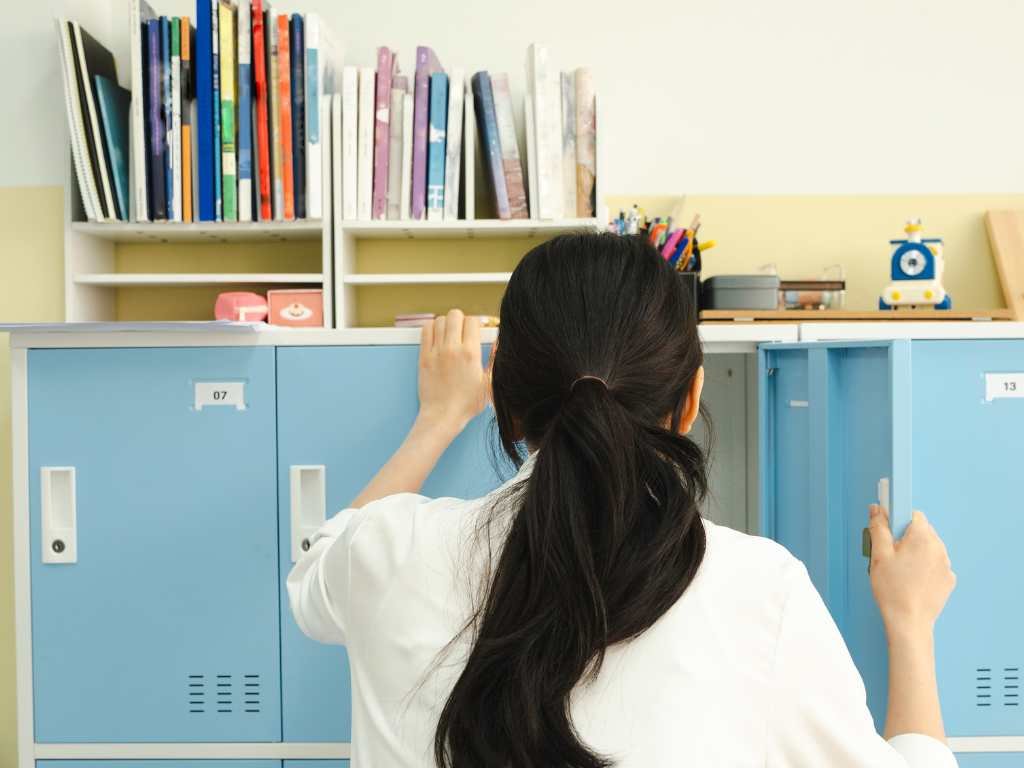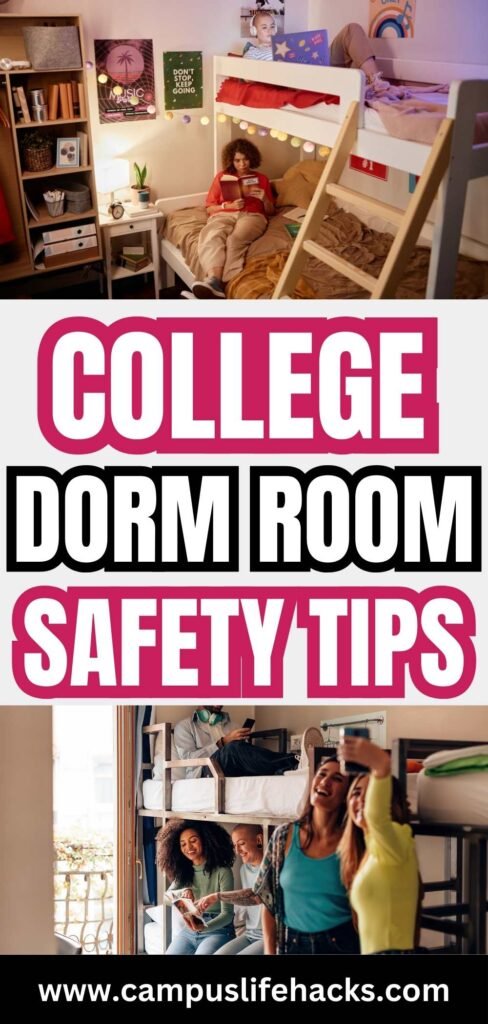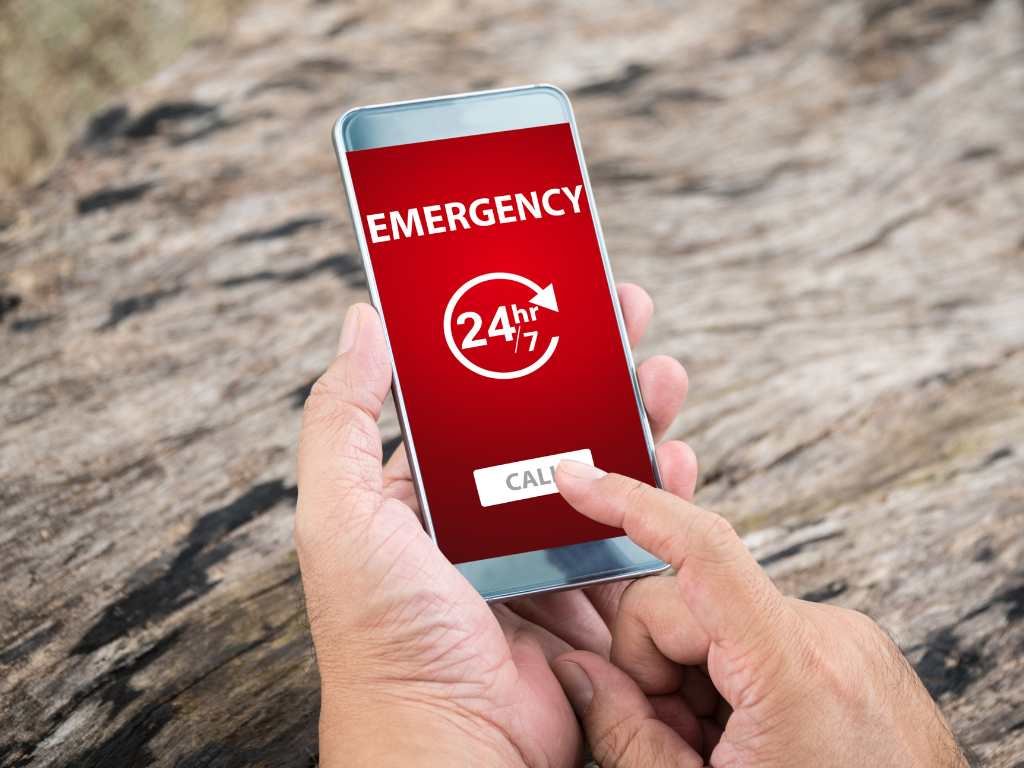College Dorm Room Safety Tips

Looking for college dorm room safety tips? This IS the ultimate guide you’ve been looking for.
I get it. Living in a college dorm can be one of the most exciting and memorable experiences of your life. However, with this newfound freedom comes the responsibility of ensuring your own safety and security.
College dorms, while generally safe, are communal living spaces where you need to be proactive about protecting yourself and your belongings.
In this comprehensive guide, we’ll explore essential college dorm room safety tips to help you stay safe and secure while living on campus.
From securing your dorm room to practicing personal safety and preparing for emergencies, these tips will help you enjoy a worry-free college experience.

Table of Contents
- Introduction
- Secure Your Dorm Room
- Protect Your Belongings
- Practice Personal Safety
- Fire Safety Tips for Dorm Living
- Stay Safe Online
- Know Your Surroundings
- Emergency Preparedness
- Final Tips for Dorm Room Safety
- Related Articles
- Final Thoughts
This blog post contains affiliate links. If you click on these links and make a purchase, I may earn a small commission at no extra cost to you. I only recommend products and services I genuinely trust and believe will add value to your life. Thank you for supporting my blog!
Secure Your Dorm Room
Your dorm room is your sanctuary on campus, and keeping it secure is your first line of defense against theft or unauthorized entry. One of the top college safety tips is to ensure that you protect yourself from prying eyes.

1. Always Lock Your Door
- Lock It Up: The most basic but crucial step in securing your dorm room is to always lock your door, even when you’re inside. It’s easy to get complacent, especially if you’re just running down the hall for a minute, but unlocked doors are an open invitation for theft. Trust me, you can never be complacent when sharing a space with others.
- Use Both Locks: If your dorm room door has multiple locks, such as a deadbolt and a chain lock, use both. This provides an extra layer of security, especially at night.
2. Don’t Prop Open Doors
- Avoid Propping: Never prop open your dorm room door or any entrance to the building. Propped doors are a security risk because they allow anyone to enter the building unchecked.
- Close Doors Behind You: If you notice that someone has propped a door open, close it behind you. This simple action can prevent unauthorized individuals from gaining access to your dorm.
3. Use a Door Stop Alarm
- Extra Protection: A door stop alarm is a small, inexpensive device that you place under your door. If someone tries to open the door, the alarm will sound, alerting you to the attempted entry. This can be especially useful at night or when you’re alone in your room.
- Portable and Easy to Use: Door stop alarms are portable and easy to set up, making them a convenient addition to your dorm room security.
Pro Tip:
If your dorm allows it, consider installing a portable door lock or security bar for added peace of mind. These devices are easy to install and remove, making them perfect for dorm living, and will definitely help in keeping you and your stuff safe.
Protect Your Belongings
College dorms are bustling places with lots of foot traffic, which means you need to take steps to protect your valuables from theft or loss.

1. Invest in a Small Safe
- Secure Valuables: A small safe is a great way to store your most valuable items, such as your laptop, passport, jewelry, and important documents. Look for a safe that is portable yet secure, and consider one with a combination lock for added security.
- Hide It Well: Keep your safe in a discreet location, such as in your closet or under your bed, to reduce the risk of it being stolen. Personally, I would keep it hidden among my clothes—or somewhere among my stuff where it isn’t too obvious.
2. Label Your Belongings
- Use a Label Maker: Labeling your belongings, especially electronics like laptops, tablets, and chargers, can help deter theft and make it easier to recover your items if they go missing. Consider using a label maker or permanent marker to mark your items with your name and contact information.
- Engraving: For added security, consider engraving your name or a unique identifier on valuable items like laptops or bikes. This makes it more difficult for thieves to resell stolen goods and increases the chances of recovery. And if you have a Macbook, it will do you good to set it up in such a way so that you can easily track it. You can get more information about this here.
3. Keep Track of Your Keys and ID
- Secure Your Keys: Always keep your dorm room keys and student ID with you, and never leave them unattended. In my campus, theft was one of the main concerns of students. Imagine going to the common shower, returning, and then realizing that your phone was stolen—this happened to me! Consider using a lanyard or keychain that you can easily attach to your bag or clothing.
- Don’t Lend Them Out: Avoid lending your keys or ID to anyone, even friends. Sometimes, people you “think” are your friends don’t have your best interests at heart. Plus, it’s easy for keys to be lost or forgotten, which can compromise the security of your room.
Pro Tip:
Consider purchasing an RFID-blocking wallet or cardholder to protect your student ID and credit cards from electronic pickpocketing. These wallets block unauthorized scans, keeping your personal information safe.
Practice Personal Safety
Your personal safety is just as important as securing your belongings. Being aware of your surroundings and taking proactive measures can help you stay safe on campus.

1. Be Mindful of Who You Let In
- Verify Visitors: Always verify the identity of anyone who asks to be let into the dorm building. If you don’t recognize them or they don’t have a key or ID, don’t let them in. It’s better to err on the side of caution.
- No Tailgating: Be cautious of people trying to “tailgate” or follow you into the building without using their own key or ID. Politely ask them to use their own access card to enter.
2. Trust Your Instincts
- Listen to Your Gut: If something feels off or makes you uncomfortable, trust your instincts. Whether it’s a person acting suspiciously or an unfamiliar noise, don’t hesitate to take action, such as leaving the area or contacting campus security.
- Report Suspicious Activity: If you notice anything suspicious, report it to campus security or your resident advisor (RA) immediately. It’s better to be safe than sorry.
3. Stay Safe When Walking at Night
- Stick to Well-Lit Areas: When walking on campus at night, stick to well-lit and populated areas. Avoid shortcuts through dark or isolated areas, and always be aware of your surroundings.
- Use Campus Security Escorts: Many colleges offer campus security escort services for students walking alone at night. Don’t hesitate to use these services if you feel unsafe.
Pro Tip:
Carry a personal safety alarm or whistle with you when walking on campus, especially at night. These devices can deter potential threats and alert others if you need help.
Fire Safety Tips for Dorm Living
Fire safety is a critical aspect of dorm life, and knowing how to prevent and respond to fires can save lives.
1. Familiarize Yourself with Fire Exits
- Know Your Exits: As soon as you move into your dorm, familiarize yourself with the nearest fire exits and evacuation routes. Knowing the quickest way out of the building in an emergency is crucial.
- Practice Drills: Participate in any fire drills conducted by your dorm. These drills are designed to prepare you for a real emergency, so take them seriously.
2. Use Electrical Appliances Safely
- Avoid Overloading Outlets: Overloading electrical outlets with too many devices can cause overheating and increase the risk of fire. Use power strips with surge protectors, and avoid plugging in too many high-wattage appliances at once.
- Check for Damage: Regularly inspect your electrical cords and devices for any signs of wear or damage. If you notice frayed wires, exposed cords, or broken plugs, replace the item immediately.
3. Be Cautious with Cooking
- Microwave Safety: If your dorm allows microwaves, use them safely by following the manufacturer’s instructions. Never leave the microwave unattended while cooking, and avoid using metal containers or utensils inside it.
- No Open Flames: Most dorms prohibit the use of open flames, such as candles or incense. Follow this rule strictly, as open flames are a leading cause of dorm fires.
Pro Tip:
Invest in a small fire extinguisher or fire blanket for your dorm room. While it’s important to evacuate immediately in a fire, having these tools on hand can help you contain small fires quickly.
Stay Safe Online
In today’s digital age, online safety is just as important as physical safety. Protecting your personal information and online identity is crucial for avoiding cyber threats.
Pro tip: When receiving emails, especially from financial institutions (a.k.a banks), make sure that you check the email address it’s from and DO NOT CLICK ON LINKS—whether through texts or emails. Double check with your bank to make sure that you receive official correspondence. I see so many people fall victim to this.
1. Secure Your Devices
- Use Strong Passwords: Ensure that all your devices, including your laptop, smartphone, and tablet, are secured with strong, unique passwords. Avoid using easily guessable information like your name or birthdate.
- Enable Two-Factor Authentication: Whenever possible, enable two-factor authentication (2FA) for your online accounts. This adds an extra layer of security by requiring a second form of verification, such as a code sent to your phone.
2. Be Cautious with Public Wi-Fi
- Avoid Sensitive Transactions: Public Wi-Fi networks, such as those in dorms or coffee shops, are often less secure than private networks. Avoid conducting sensitive transactions, such as online banking or shopping, while connected to public Wi-Fi.
- Use a VPN: Consider using a virtual private network (VPN) to encrypt your internet connection when using public Wi-Fi. A VPN helps protect your data from being intercepted by hackers.
3. Protect Your Personal Information
- Limit Sharing on Social Media: Be mindful of what you share on social media. Avoid posting your dorm room number, class schedule, or other personal information that could be used to locate or target you.
- Beware of Phishing Scams: Be cautious of emails, texts, or phone calls that ask for personal information or direct you to suspicious websites. Phishing scams often attempt to trick you into providing sensitive information by pretending to be a trusted source.
Pro Tip:
Regularly update your software and apps to the latest versions. Software updates often include security patches that protect your devices from vulnerabilities.
Know Your Surroundings
Being aware of your surroundings, both on and off campus, is key to staying safe and prepared.

1. Familiarize Yourself with Campus Resources
- Know Where to Get Help: Identify the locations of campus security offices, emergency call boxes, and health services. Knowing where to go for help can be crucial in an emergency.
- Use Campus Maps: Carry a campus map or download a campus map app to help you navigate the campus and find the quickest routes to safety.
2. Build Relationships with Neighbors
- Get to Know Your Neighbors: Building relationships with your dorm neighbors can enhance your safety. Neighbors can keep an eye on each other’s rooms, offer support in emergencies, and create a sense of community.
- Exchange Contact Information: Exchange contact information with a few trusted neighbors or friends in your dorm. This allows you to quickly reach out to someone nearby if you need help.
3. Stay Informed About Campus Alerts
- Sign Up for Alerts: Many colleges offer emergency alert systems that send notifications about campus safety issues, weather emergencies, and other important events. Sign up for these alerts to stay informed about potential threats.
- Monitor Social Media: Follow your college’s official social media accounts for updates on safety issues and campus events. Social media can be a quick way to receive information and stay connected.
Pro Tip:
Keep a small emergency kit in your dorm room that includes essentials like a flashlight, batteries, a first-aid kit, and bottled water. This can be useful in various emergency situations, from power outages to natural disasters.
Emergency Preparedness
Being prepared for emergencies is essential for your safety and peace of mind while living in a dorm.

1. Create an Emergency Plan
- Plan Ahead: Develop an emergency plan with your roommate and neighbors. This is, by far, one of the best college dorm room safety tips—because there definitely is strength in numbers. People tend to look out for others. Discuss what you’ll do in different scenarios, such as a fire, severe weather, or lockdown situation. Having a plan in place ensures that everyone knows how to respond quickly and effectively.
- Designate Meeting Points: Designate safe meeting points both inside and outside the building where you can regroup in case of an emergency. Make sure everyone knows these locations.
2. Keep Important Contacts Handy
- Emergency Contacts: Keep a list of important contacts, including campus security, your RA, and local emergency services, in an easily accessible place. You should also have the phone numbers of close friends or family members on hand.
- ICE Contact: Program an “In Case of Emergency” (ICE) contact into your phone, so first responders can reach your designated contact quickly if you’re unable to communicate.
3. Stay Informed
- Monitor Weather Alerts: Pay attention to weather alerts, especially during severe weather seasons. Know the safest place to take shelter in your dorm and be prepared to move quickly if necessary.
- Stay Connected: In case of an emergency, stay connected with your college’s communication channels for official updates and instructions.
Pro Tip:
Keep a small backpack or bag with emergency essentials, including your emergency contacts, a flashlight, a first-aid kit, a phone charger, and some cash. This “go bag” can be grabbed quickly in case of an evacuation or emergency.
If you have important documents—birth certificates, passport, and other important hard copy files, do keep them safe in a fireproof and waterproof organizer like this one that you can grab and go when crisis strikes.
Final Tips for Dorm Room Safety
College dorm room safety is about being proactive, aware, and prepared. By taking simple steps to protect yourself and your belongings, you can enjoy a safe and secure college experience.
- Stay Vigilant: Always be aware of your surroundings, both in your dorm and on campus. If something feels off, trust your instincts and take appropriate action.
- Communicate with Your Roommate: Open communication with your roommate is key to maintaining a safe living environment. Discuss any safety concerns or rules you both need to follow.
- Be Prepared: Whether it’s a small fire, a power outage, or a medical emergency, being prepared can make all the difference. Have a plan, keep essential items on hand, and stay informed.
Pro Tip:
Remember that safety is a shared responsibility. By looking out for yourself and others, you contribute to a safer and more secure dorm community.
Related Articles
Best Storage Solutions for Small College Dorm Rooms
Top 10 College Dorm Room Must-Haves
How to Make Your College Dorm Room Feel Like Home
Final Thoughts
Staying safe in your college dorm is about more than just locking your door—it’s about being aware, prepared, and proactive.
By following these college dorm room safety tips, you can protect yourself, your belongings, and your peace of mind.
Remember, your dorm is your home away from home, and taking steps to ensure its safety will help you enjoy your college experience to the fullest.
